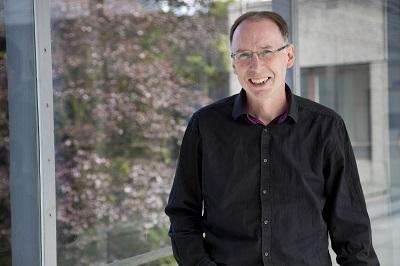
Adopting new attitudes to diet and exercise could help Scots prevent type 2 diabetes in 2022, a University of Dundee researcher says.
Professor Calum Sutherland, an expert in the condition at the University’s School of Medicine, says that weight loss can both prevent type 2 diabetes and result in remission for those with a previous diagnosis, and is urging people to use the new year to make healthier lifestyle choices.
He was speaking ahead of a major public event to mark the centenary of the discovery of insulin, a hormone crucial in preventing the disease. Organised by Diabetes Scotland and hosted by the University, Is it possible to prevent diabetes and its serious health problems? is a free, online seminar, taking place on Wednesday 12 January from 6 – 8pm.
The event will describe why decades of diabetes research have not yet reduced the number of people with the condition, but also how scientific breakthroughs made in Scotland are helping patients in their daily lives.
“Receiving a diabetes, or even pre-diabetes diagnosis is understandably frightening news,” said Professor Sutherland.
“The good news, however, is that we now know type 2 diabetes does not need to be a lifetime condition. Simple changes in lifestyle – moderate exercise and healthier diet – that lead to weight loss can help improve glucose control resulting in remission from type 2 diabetes.
“A Scottish trial was the first to show that weight loss in people recently diagnosed with type 2 diabetes produced remission in almost all those who lost 15Kg or above. This is a major development and offers huge hope to those who may have received a diagnosis. Encouraging people to help themselves and make these changes is absolutely crucial.
“As many people adopt resolutions for the start of 2022, there are few better reasons to live more healthily than to fend of the dangers posed by type 2 diabetes.”
More than 4.7 million people in the UK live with diabetes, with figures having trebled since 1996. Type 1 diabetes affects more than 31,000 Scots and is caused by the body attacking the pancreas, which produces the insulin required to prevent blood sugar levels reaching dangerous levels.
Type 2 diabetes is more prevalent and can be affected by lifestyle habits, with the body not responding properly to insulin due to extra weight, and so being unable to regulate blood sugar levels.
Complications arising from diabetes can include life threatening heart and kidney disease, and it is also the biggest cause of blindness and amputation in the UK.
Based within the University’s School of Medicine, Professor Sutherland’s laboratory is at the forefront of diabetes research and has contributed to the understanding of how insulin works to keep sugar and fat from damaging the organs in the body.
Diabetes Scotland is hosting several events to mark the centenary of the discovery of insulin, a breakthrough made in Canada in 1921. One of the three men behind the breakthrough was Professor John Macleod, from Perthshire, who received the 1923 Nobel prize in Physiology or Medicine for his role in the discovery.
Is it possible to prevent diabetes and its serious health problems? takes place on Wednesday 12 January from 6 – 8pm. Attendance is free but registration must be completed in advance online.